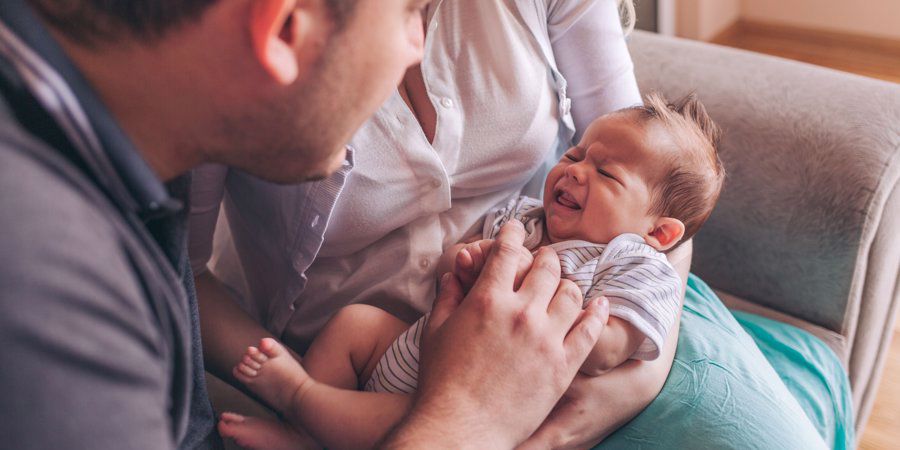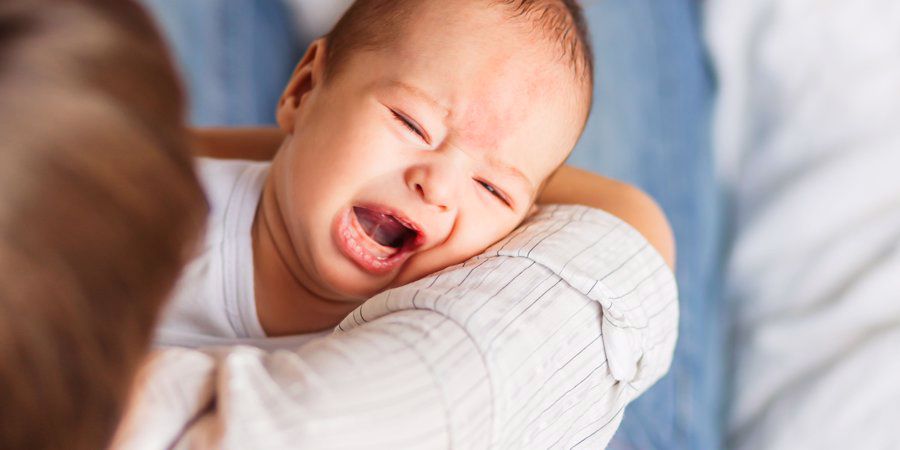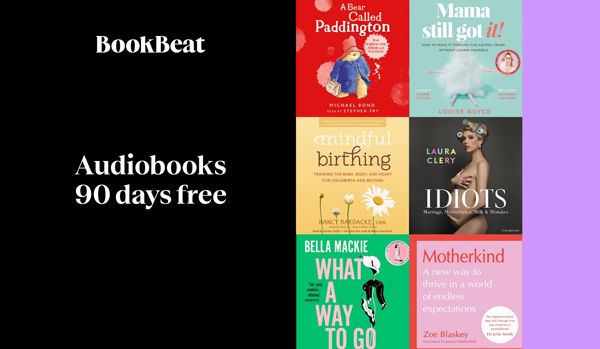All babies cry, and some more than others, it's totally normal and is your little one's way of telling you the need something. Over time you will get used to their cries and what they mean, but sometimes it's difficult to know why they are crying.
Reasons your little one may be crying:
- Hunger
- A dirty or wet nappy
- Too hot or too cold
- Tiredness
- Wanting a cuddle/comfort
- Wind
- Over-stimulation
- Boredom
Your little one may cry at certain times of the day and cannot be comforted no matter what you try. Early evening, otherwise known as 'The Witching Hour' is the most common time. This can be hard for you and your partner as it can be frustrating and it's a time of the day where everyone is most tired. The good news is that this phase doesn't last forever!

How to calm a crying baby
Try some of the following ways to comfort and calm your baby:
- Having some gentle noise, like white noise or music in the background may help distract your little one
- Some older babies like to use a comforter
- Put them in a sling so they feel close to you
- While holding them sway and dance, talk to them and sing.
- Rock your baby backwards and forwards in the pram
- Go out for a walk or a drive, they may find the motion calming
- Find something for them to listen to or look at. This could be music on the radio, a CD, a rattle, or a mobile above the cot.
- Try a warm bath
If you are still concerned with prolonged crying ask your health visitor for advice.
Crying during feeds
Some babies cry and seem unsettled around the time of a feed. If you're breastfeeding, you may find that improving your baby's position and attachment may help. COntact your local breast feeding group/counsellor for advice.
Crying during feeds can sometimes be a symptom of reflux, which is a common condition where babies bring back milk after feeds. Speak to your health visitor or GP for more information and advice.
If your baby cries constantly
There are several reasons that can cause a baby to cry excessively. It can be exhausting if you have tried everything and nothing seems to work.
Colic
Excessive crying could be a sign that your baby has colic. The crying sounds painful and distressed. It can stop for a while then start up again which may be stomach pain. The crying can go on for hours and there might not be much you can do to help and comfort your baby apart from wait for the crying to stop.

Crying and illness
If your little one is crying constantly and you cannot console them, or the cry sounds different to normal, it could be a sign that they're ill. If this is the case, contact your health visitor or GP.
Call 999 and ask for an ambulance if your baby:
- Has a seizure or convulsion
- Has blue, mottled or very pale skin
- Breathes rapidly or makes a throaty noise while breathing or seems to be working hard to breathe
- Has a high temperature but their hands and feet feel cold
- Has a spotty purple-red rash anywhere on the body – this could be a sign of meningitis



